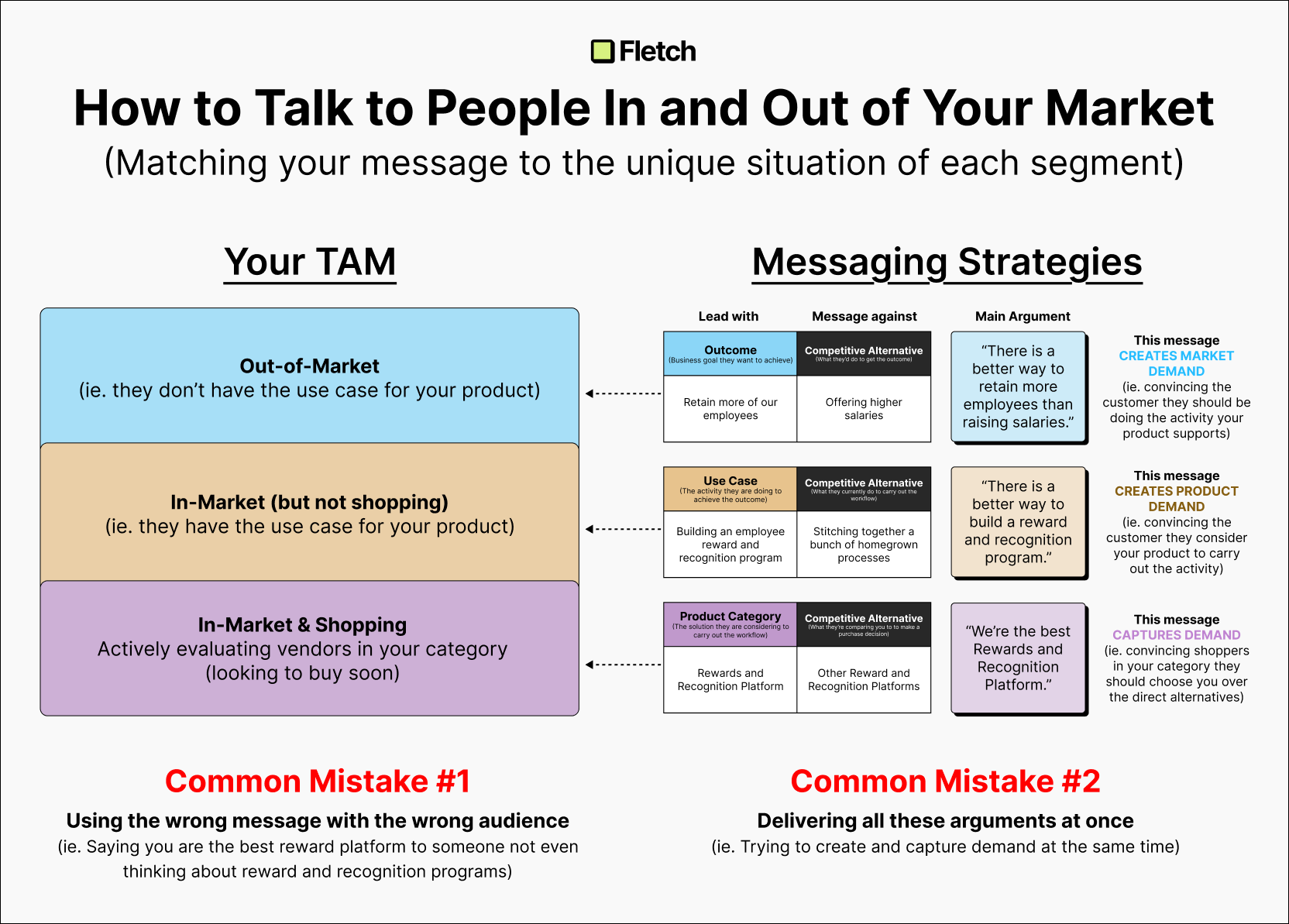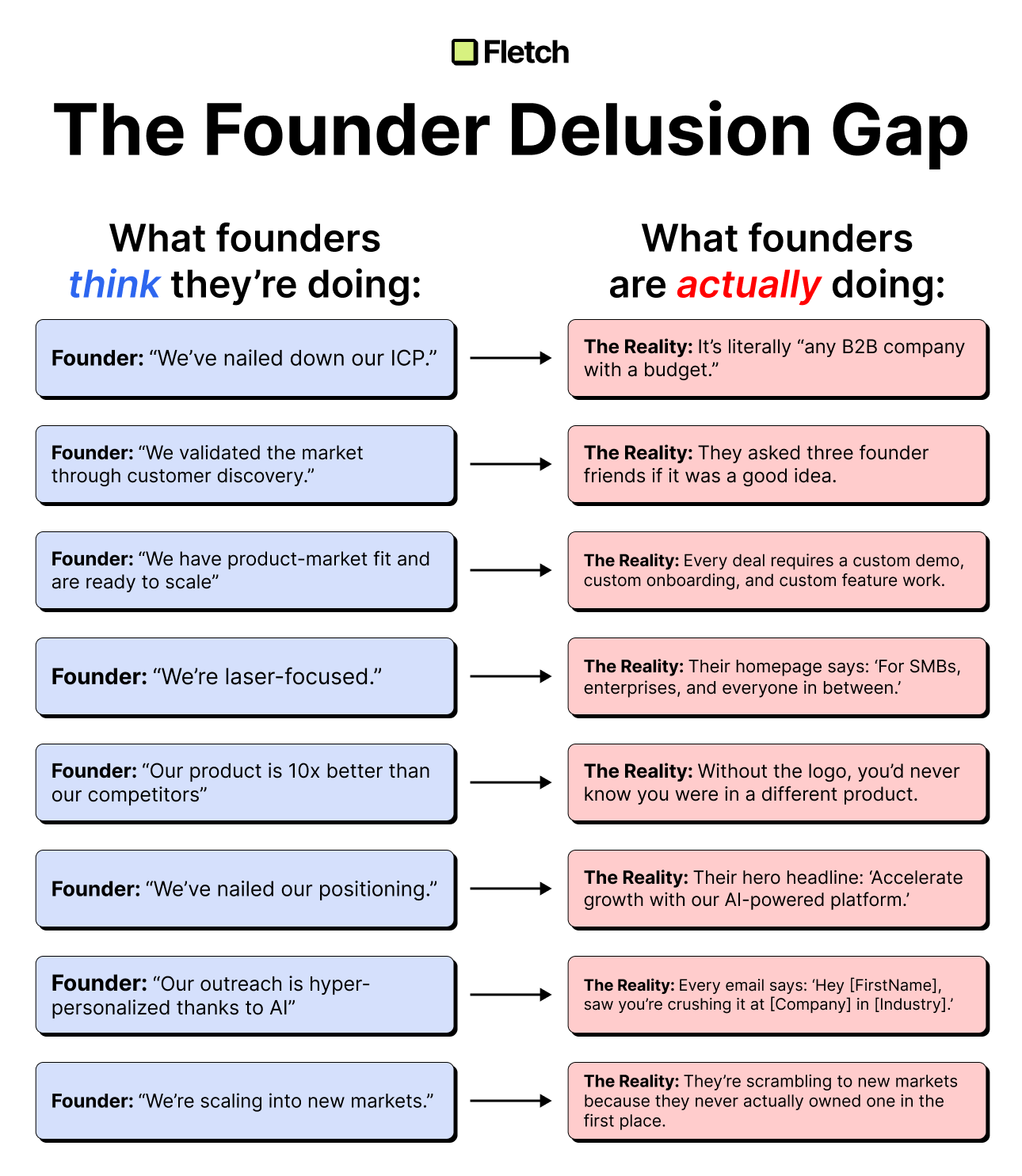“Focus” unlocks two things clients care about


"Focus" unlocks two things that certain clients care about:
→ clarity + simplicity
Me and my cofounder Robert Kaminski 🎯 started Fletch with a very specific goal in mind:
We wanted to solve one problem for one type of customer in an extremely repeatable way.
Inspired by "Built to Sell" by John Warrillow and "The Five One's" principle by Greg Hickman, we wanted to treat our consultancy like a product as much as possible.
It just happened that our delivery model would be humans rather than software.
But as we leaned into this, a lot of interesting things happened:
→ As we got more efficient, our results got BETTER (not worse)
→ As we got more efficient, our time spent per client shrunk, but our pricing went up (which meant higher margin)
→ As we solved the same problem 100 times... 200 times... 300 times... 400 times... we began to be seen as true leaders in the space of positioning
→ We saw more and more patterns emerge that fueled our content, which then drove more clients
→ Our sales process has been drastically shortened, with some prospects buying after the first call (and some buying without even having a call at all!)
Obviously, we were very stoked about these. But there were CUSTOMER-facing benefits as well.
Prospects know...
→ when they should buy us
→ exactly how much we cost
→ how long it will take
→ what they will get
This is simply not the case with many other custom service providers.
When everything needs to be scoped from scratch, the customer actually cannot know the answers to these very fundamental questions until RIGHT before they have to sign.
There is tons of ambiguity in going custom.
I understand that sometimes prospects don't know what they need, and so they need someone to come and offer a fully custom solution for their bespoke problem.
That is totally fine — that's just not the business we wanted to build.
If you're a budding agency or consultancy builder, consider going productized.
At this point, I would never go back.

Ben Wilentz
Founder, Stealth Startup




